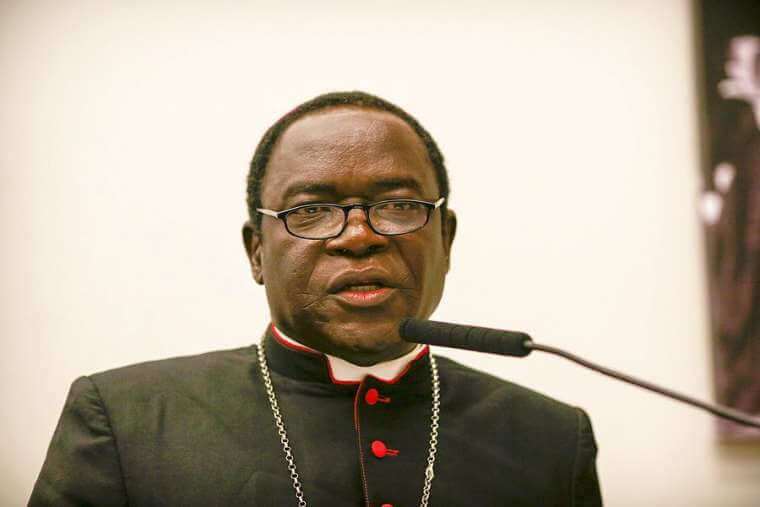The federal government has berated what it described as “divisive” and “insensitive” remarks credited to the Catholic bishop of Sokoto Diocese, Matthew Hassan Kukah, on activities of Boko Haram insurgents in the country.
This came after Kukah, at a recent meeting in the United Kingdom, said what differentiates the government and Boko Haram is that the insurgents use bombs while the government doesn’t.
Advertisement
“The only difference between the government and Boko Haram is (that) Boko Haram is holding a bomb,” the bishop had said, adding “They are using the levers of power to secure the supremacy of Islam, which then gives more weight to the idea that it can be achieved by violence. With the situation in Nigeria, it is hard to see the moral basis they have to defeat Boko Haram.”
Kukah added that, “They (the government) have created the conditions to make it possible for Boko Haram to behave the way they are behaving.”
But responding on Friday, the Minister of Information and Culture, Lai Mohammed, slammed Kukah for comparing the government to insurgents.
Mohammed, through his media aide Segun Adeyemi, said the cleric’s comment is “not only disingenuous, but also a great disservice to the men and women in uniform who are daily battling the Boko Haram and ISWAP terrorists to keep all Nigerians safe.”
Advertisement
“To now attribute the actions of these mad bunch to an orchestrated and systematic plan to elevate one religion over the other or decimate adherents of a particular religion is not only unfortunate but divisive, incendiary and insensitive,” Mohammed said.
The minister said the insurgent’s ideology does not align with any religion, “irrespective of their pretense to such.”
Mohammed said the insurgents are driven by their “primitive propensity to kill mindlessly and destroy without restrain, irrespective of their victims’ creed, gender or tribe.”
He urged Kukah and other religious leaders to be cautious of their comments “because of the deeply emotive nature of religion and the tendency for it to be exploited for political gains by naysayers.”



